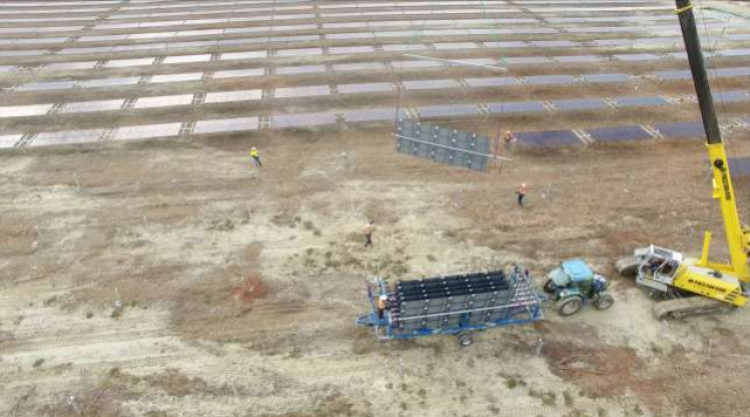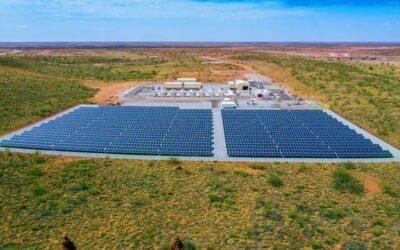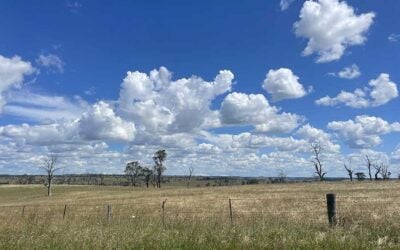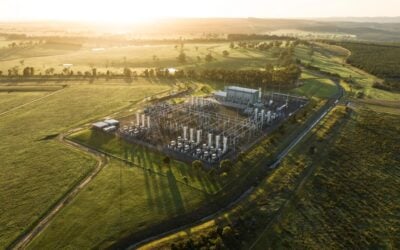
Australian renewable energy developer Genex Power has achieved financial close on what looks likely to be the country’s first new pumped hydro energy storage (PHES) plant in nearly 40 years.
Energy-Storage.news reported in late March this year that Genex was moving in on its financial targets after the national Australian Renewable Energy Agency (ARENA) gave conditional approval for AU$47 million of funding support.
Enjoy 12 months of exclusive analysis
- Regular insight and analysis of the industry’s biggest developments
- In-depth interviews with the industry’s leading figures
- Annual digital subscription to the PV Tech Power journal
- Discounts on Solar Media’s portfolio of events, in-person and virtual
This morning ARENA said in a release that financial close has now been reached for the AU$777 million project to be able to go ahead. The cost includes transmission infrastructure to take power away to the northeast coast of Australia some 190km away, where its stored energy can be used in the National Electricity Market (NEM). The 250MW / 2,000MWh Kidston Stage 2 PHES plant, which will be able to store and discharge energy for up to eight hours.
Kidston Stage 2 will also receive AU$620 million in debt equity pledged in 2019 by Commonwealth Government lending facility Northern Australia Infrastructure Facility as well as AU$147 million committed by the state government of Queensland for the building of transmission infrastructure. It will be built at a former goldmine site at Kidston Clean Energy Hub in North Queensland, where Genex has also built renewable energy facilities including a 50MW solar PV plant.
Construction is expected to be completed by 2024 and engineering, procurement and construction (EPC) duties will be carried out by a joint venture (JV) between two companies, John Holland and McDonnell Dowell. Incidentally, yesterday our sister site PV Tech reported that Japanese energy company J-Power has taken a 10% stake in Genex Power through one of its own subsidiaries based in Australia called JPGA Partners.
Meanwhile, although lithium-ion batteries dominate headlines in the energy storage industry and the bulk of new capacity being built uses lithium-ion, the vast majority of energy storage capacity already installed is pumped hydro. Kidston will be Australia’s first new project since 1984, but others could follow and there have been moves to get new projects built in India, California, Scotland and latterly Uzbekistan, among others.
National government’s devotion to ‘gas-fired recovery’ slammed as ‘reckless’
The news comes only a few days after the Federal Government decided to build a new gas-fired power plant elsewhere in Australia, with the government of Prime Minister Scott Morrison seemingly committed to the rhetoric of creating a “gas-fired recovery” of the national economy from the COVID-19 pandemic.
This is despite overwhelming public support for renewable energy and the Clean Energy Council, a trade association representing many companies in the domestic sector described the decision to support the gas power station in New South Wales “reckless,” as well as “unhelpful and unnecessary”.
Clean Energy Council chief executive Kane Thornton said that Australia has commissioned record levels of new large-scale renewable energy projects, over 10,300MW of wind and solar, within the past three years. Thornton pointed out that there has also been a 400% increase in new investment commitments to utility-scale battery energy storage representing 600MW in the past quarter of the year.
“These renewable energy investments have driven down power prices and demonstrate the enormous commitment of investors into new renewable energy and energy storage projects and reinforce the fact this new gas plant is not necessary,” Thornton said.
The Clean Energy Council recently published a study which showed that the levelised cost of energy (LCOE) from large-scale battery storage could be 30% cheaper than new natural gas peaker plants of the type planned in New South Wales, even before environmental and social benefits, potential market revenues battery storage could get from the NEM and the stranded asset risk of carbon-intensive energy assets was factored in.






